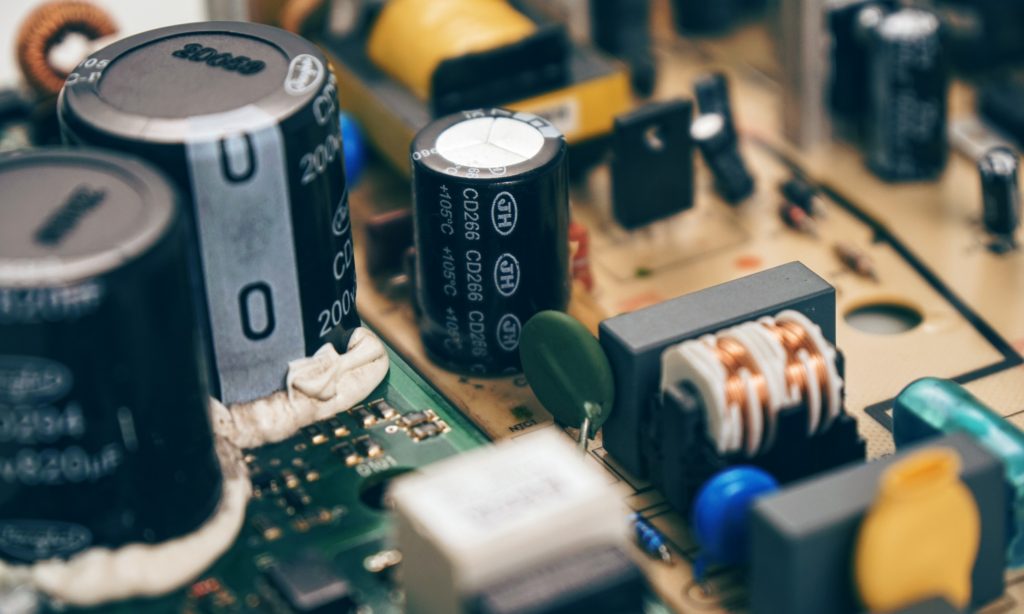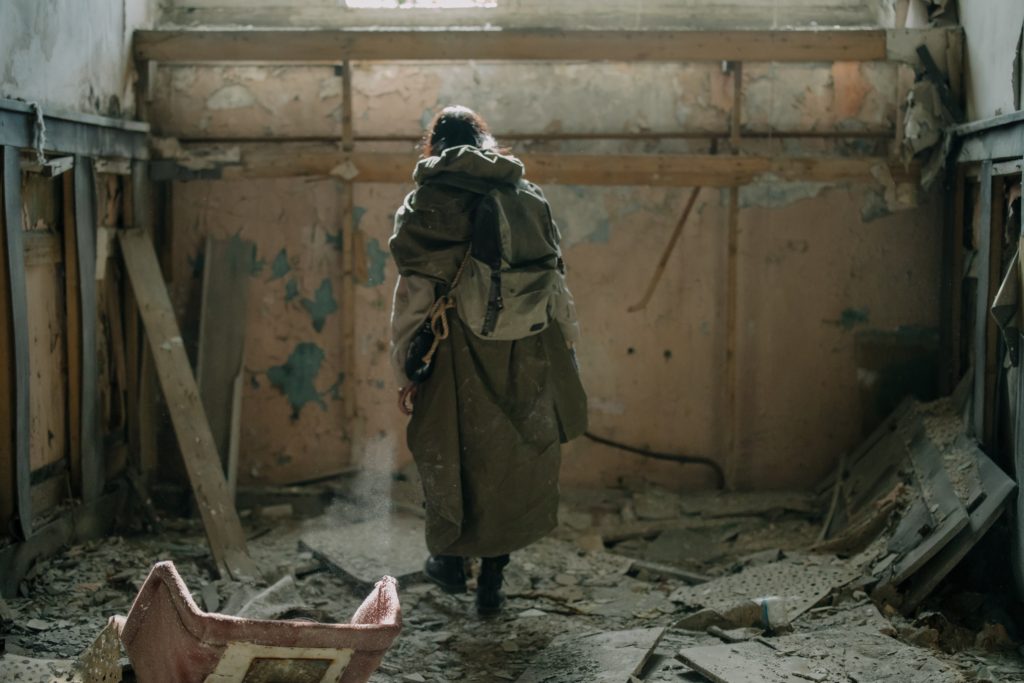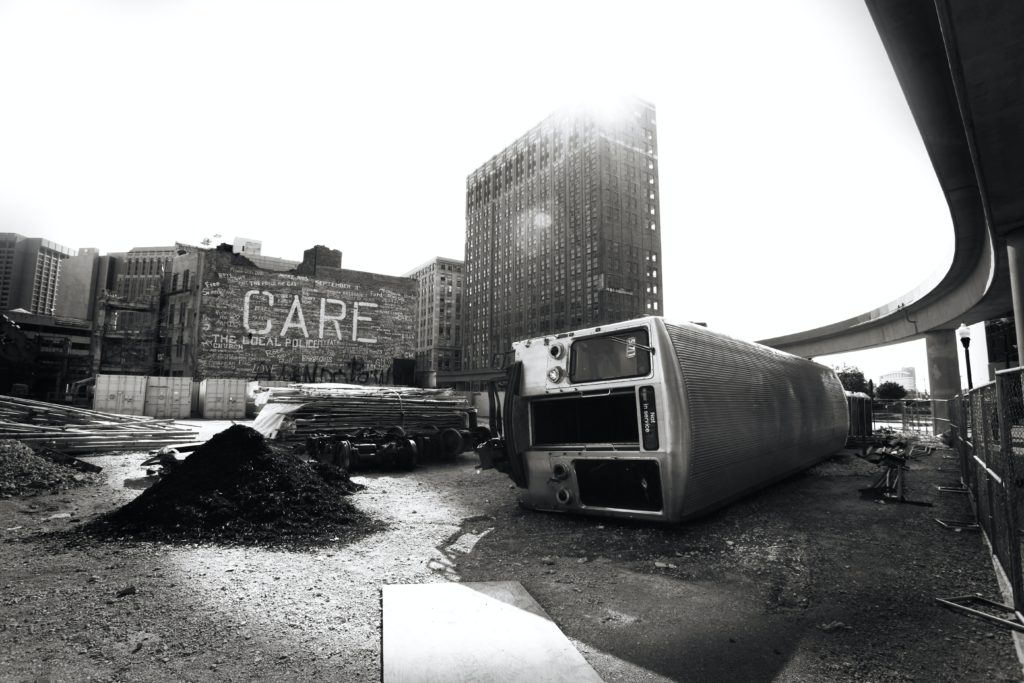
The world without electricity today is unimaginable. We depend on electricity for almost everything in our daily lives. Lights in our homes and cities first come to mind. But the power of electricity is so widespread that probably there isn’t any field of humanity where it doesn’t play one of the main roles.
Yet, we humans lived without its application and widespread use for 99,99% of our time on this planet.
Electricity wasn’t invented per se, it was present from the beginning of times, but we didn’t know how to harvest it for our usage. People first started noticing something electric when they became aware of shocks from electric fish. In ancient Egypt, they were referring to these fish as the “Thunderer of the Nile.”
At that time, as far as we know, they didn’t have the slightest idea what electricity really was. Ancient Greek, Roman, and Arabic physicians also reported about those electric fish. Some ancient writers witnessed about numbing effect of electric shocks caused by catfish. However, what is very important, they knew that those shocks could travel along conducting objects.
Then around the ancient Mediterranean, people knew that certain objects such as rods of amber could be rubbed, for example, with cat’s fur to attract light objects such as feathers. Ancient people around 500 BCE also knew something about static electricity, but they didn’t quite know what to do with that.
Researchers and archeologists also discovered different pots with copper inside, and they believed that those were used as batteries in ancient Roman sites. Perhaps they used those batteries for lightning, but we don’t really know.
Fast forward many years ahead, we discovered and applied electricity, but there are still many misconceptions about who really “discovered” it. Some give credit to Benjamin Franklin for discovering electricity. However, his experiments only helped establish the connection between lightning and electricity and nothing more.
Some 50 years after Benjamin Franklin’s experiment, Italian physicist Alessandro Volta discovered that particular chemical reactions could produce electricity, and based on that, in 1800, he constructed an early electric battery that produced a stable electric current.
Thus, he could be accredited as the first person to create a steady flow of electrical charge. Additionally, Volta created the first transmission of electricity by linking positively-charged and negatively-charged connectors and driving an electrical charge through them. A curious fella’ that Alessandro, for sure.
Michael Faraday and Future Progress Of Electricity

Then we have Michael Faraday as he created electric dynamo in 1931. This basically solved the problem of generating electricity in a constant and practical way. This invention consequently opened the door to Thomas Edison for his invention of the light bulb in 1878. He wasn’t the only one, as British scientist Joseph Swan invented the same around those years. Electric illumination was groundbreaking because previously, all lightning was based on gas and oil burning inside the glass.
I mean, some form of light bulbs had been invented by others, but theirs was the first practical one as it could emit light for hours on end. Swan and Edison later created a joint company where they produced the first practical filament lamp. Edison followed that by illuminating New York streets with electric lamps in September 1882.
Later in the 1800’s and early 1900s, Serbo-Croatian engineer, inventor, and all-around electrical wizard Nikola Tesla became a crucial contributor to the birth of commercial electricity. He had so many inventions that it’s hard to name them all. He was one of the most prolific and innovative engineers and inventors of the nineteenth and twentieth centuries.
It is believed that Nikola Tesla held somewhere in the order of 196patents for his tech across26countries worldwide. He also worked with Edison, and it is well known that they had many disputes regarding the usage of AC vs. DC. Luckily Tesla managed to convince American society that the future of electricity is with AC rather than DC. With his inventions, he is probably the biggest contributor to the world of electricity as we know it today.
Of course, there were also others who worked to bring the use of electricity to where it is today, including Scottish inventor James Watt, Andre Ampere, a French mathematician, and German mathematician and physicist George Ohm. And so, it was obviously not just one person who discovered electricity. While the concept of electricity was known for hundreds and perhaps thousands of years, when the time came to develop it commercially and scientifically, dozens of great minds worked on the problem simultaneously and through many years.
So undoubtedly, many coincidences, genius people, and a lot of curiosity led to finding out what electricity really is and how to harvest it for our use. Electricity can be almost singlehandedly awarded as one of the biggest factors to all our technological and societal development.
Without electricity, we can for sure agree we wouldn’t have information and communication technologies which are today’s main wheels of progress and development.
Yet, we could also argue that electricity is then to be blamed for increasingly more “broken wheels” that we’re witnessing in our society caused by such progress.
Modern Times and Potential Consequences

In modern times we can notice that many people are blaming technological development for the biggest problems in society. However, if we’re to be very blunt and concise, this technological development all started only because of electricity. So, we could easily blame electricity for all those changes.
Without electricity, we wouldn’t have smartphones or social networks, which are changing today’s society completely. Yet, without electricity, we also wouldn’t have food or water distribution as we are used to in our lives. Or any other commodity for that matter.
Electricity (among other things) enabled humans to produce food and other products on a large scale. This led to a big surplus of food and other products, which again led to people reproducing more than ever and dying less. In the 1800s, there were less than 1 billion people on Earth, and now there are 8,232,458,392 people on Earth. Just imagine the growth in only 200 years.
So obviously, this growth was made possible because of electricity (and some other factors, of course), but this growth also made possible that the stupidity of large masses grows similarly. Introduction from movie Idiocracy comes to my mind when I think about it:
“As the 21st century began, human evolution was at a turning point. Natural selection, the process by which the strongest, the smartest, the fastest, reproduced in greater numbers than the rest, a process which had once favored the noblest traits of man, now began to favor different traits. Most science fiction of the day predicted a future that was more civilized and more intelligent. But as time went on, things seemed to be heading in the opposite direction. A dumbing down. How did this happen? Evolution does not necessarily reward intelligence. With no natural predators to thin the herd, it began to simply reward those who reproduced the most, and left the intelligent to become an endangered species.”
Idiocracy analogy is nice, but what does all that have to do with a potential electricity blackout scenario? Well, today, every possible scientific discovery is available for us and for our day-to-day use, but if some of those suddenly disappear, we are likely helpless.
Not only that, but our long-time habits such as usage of electricity hinders our lives completely in case of a blackout, and especially in modern society. Several days is not a problem for most, but then after weeks, problems start to be so large that it seems like a collapse of society.
In the modern world, we didn’t have many prolonged blackouts, but if it were to happen, say for a year, well, then we’re in big trouble. So, let’s examine how the potential timeline of blackout would impact society day by day. Before that, I need to mention also real-life cases of blackout in modern society.
For example, hospital patients in Venezuela found out in 2019 during a five-day nationwide blackout that power cuts can do much more than just turn out the lights. Doctors and staff were helpless. In almost total darkness, they watched patients dying in front of them. Without electricity the lifts could not work and what is more important many life assisting machines could not work.
Consequently, 26 people died. Some because they couldn’t get vital dialysis and other treatments, and some because surgeons could not operate in darkness. Terrifying situation indeed.
Texas Blackout

Then we have a recent example that played out in Texas, USA, in February 2021. The crisis was the result of two harsh winter storms sweeping across the United States on February 10–11 and 13–17. More than 4.5 million homes and businesses in Texas were left without electricity, some for several days.
By February 19, at least 32 people died, with deaths linked to carbon monoxide poisoning, drownings, house fires, car crashes, and hypothermia. By February 21, the death toll had increased to 70. Not so many deaths, one could presume, considering the number of people in Texas. However, have in mind this lasted only for two weeks.
There are also several cases around the world throughout history, but none lasting for a really long time. Each prolonged day would bring additional deaths and huge problems for society. So, let’s try to hypothesize on that prolonged imaginary scenario and perhaps, in this case, for the whole world.
On the first day, people would be very surprised, especially if they hear somehow that it is happening worldwide. That information would set a spark for anxiety and fear. Nevertheless, one day without electricity is not a huge problem since most essential institutions and facilities have backup generators from which they can produce electricity. Most citizen buildings, however, would be in complete darkness.
That means problems for older citizens as elevators are not working. Also, today’s society mostly can’t think of what to do in the evening without television or the internet. A huge problem for the boredom of people but not really an essential problem for the world. Perhaps one day of blackout would be even good for many people since then they would be forced to talk to their spouses and other family members.
The second day starts, and electricity is nowhere to be seen. Still, the whole world is in the dark. Well, at least that part where there is no sunlight at that particular time. Nevertheless, darkness is not such a big problem. Many other things are, such as heating, water supply, gas supply, and so forth. Without electricity, gas stations cannot pump gas unless they have a generator or an alternate source of power.
Some stations have generators to work 24 hours, some perhaps 48, but inevitably if the power outage continues, this becomes a huge problem for overall transport. Let’s say that on day two, most gas pumps do not work properly, then immediately we have problems with transporting essential things such as food. So, the food chain could become broken very soon, and this is the real problem.
Most of today’s communities cannot live long before running out of food in their homes, as rare people live self-sustainable lives. People are going a couple of times per week to stores to buy groceries. To be fair, some of those are not essential, but as fridges are getting empty, so the concern levels grow in each household. Add to that reminder that electricity is still gone in the whole world. For a second day. Anxiety and fear triples. But there is hope for day three.
Day three arises. Still nothing. The whole world is still in electricity blackout. But now, many essential services will run out of backup electrical power. Depending on the country’s policies, in rare places can hospitals work normally. And when hospitals run out of electricity, dire problems start to arise, as explained in Venezuela example.
Elevators necessary to transport patients are not in service anymore. But that’s the least of worry for hospitals. So many devices in hospitals responsible for keeping people alive are near to their dead-end — literally both for devices and patients. Also, without lights, obviously, you can not operate properly on people. Basically, if the hospital is out of electricity and backup power, they are doomed completely.
So, if hospitals are in panic, people outside hospitals are also in a panic. Not that people just stopped getting injured or sick all of a sudden. But what to do with them now? You can not bring them to the hospital that is not working. So, more panic among the people. In the majority of households, the discussion is solely around what is happening in the world. Everyone is in panic, and there is no word from your favorite politician.
How could it be? I mean, you can not turn on your television or internet portal. Food in the refrigerator is also running out, and the nearby store is either not working, or most food is missing. What about tap water? Well in majority households water comes out of the pipe which is connected to city water. And those get filtered powered by electricity. So, if you even can get some water, this water isn’t drinkable.
Then you need to heat it up to boiling water so that it becomes drinkable. But where to heat it. On gas oven, of course, but for how long. How long could this last?
Fast forward to two weeks without electricity. Now it is whole mayhem in the world. Everything is collapsing. All the things that people are used to, like television, the internet, social networks, and many other (really not important) things, are in a blackout. But those are just the small things even though they seem like the most important things ever in their daily lives for the modern human.
But hey, without cute internet kitties, one can live normally. Nonetheless, the internet is not only for those things. Without the internet, nothing works. And I mean almost literally nothing in today’s society. Try to shop in the store without internet (if the store works because of blackout), try to go to ATM, try to call anyone.
Without global electricity, no modern phone will work. You are in a panic, and you cannot call your mother on the other end of the country or continent. What about food? Well, if you live in a village and have your own farm perhaps you can do something. But if you have a big farm, well, that one also isn’t working without electricity, so the livestock starts dying. If you have two pigs and a couple of cows, you’re probably good for a year or more in this situation.
But bigger farms are doomed as those animals are being fed with the help of electricity or, being more precise – with machines that run on electricity. Consequently, this then adds to the problem of breaking the food chain completely.
Fast forward two more weeks – now one month without electricity. People are panicking more than ever. Additionally, they now really don’t have any more topics to talk about with their spouses. Not that this is not an essential problem, but it aids to anxiety because only topics on the table are; what is happening, will we survive, where to get food, is this all being done on purpose, are the riches of the world hiding somewhere waiting for all of us to go extinct?
The latter is a rather interesting question. In this situation of horror, what would happen with billionaires and those in power? Of course, they would handle the situation much better because they have all possible resources in their hands. And additionally, many also prepared beforehand. Not that I am predicting this will happen, but did you know how many articles appeared in the last two years named something like this:
“Billionaire bunkers: How the 1% are preparing for the apocalypse.”
Hundreds, probably thousands, and I am not exaggerating at all. One specific article about bunkers continues by describing how many of the world’s elite, including hedge fund managers, sports stars, and tech executives, have chosen to design their own secret shelters to house their families.
Gary Lynch, general manager of Texas-based Rising S Company (steel bunker producer), says 2016 sales for their custom top-notch underground bunkers grew 700% compared to 2015. Now, this is something to think about. With regards to electricity, those bunkers mostly have an underground power generator, and they have a stockpile of fuel to keep the generator running for a long time.
This then, of course, leads to the conclusion that elites of the world would be covered in a situation of a total electricity blackout. Well, at least more than the average Joe. Needless to say, I am not here stating that anyone is foreseeing that this kind of apocalypse could or will happen, but the matter of the fact is that riches of the world are more prepared, and they are buying bunkers like crazy in the last decade.
World Without Electricity – Doomsday

So, in our imaginary scenario, last month, some 0.001% of people perhaps moved to bunkers and are observing what is happening with the world, but they also are not secured as no one knows when will electricity get back. Bunkers can sustain life perhaps for a year, two, or five but not indefinitely.
Nevertheless, their anxiety levels are much lower than those of average people living in 50 square meter apartments where their main topic is now – “what the fuck is happening and should I maybe start to think about suffocating my neighbor when shit hits the fan because he/she is very loud and potentially good source of food.“
And so, shit did hit the fan 100%. Weeks turned into months, and no light at the end of the tunnel. Now six months into the blackout and society is on the verge of complete collapse. Famine is now widespread as food chains are entirely collapsed.
No food can be seen in stores; actually, there are no open stores to be found. Some self-sustainable people are coping quite well, but their family estates are being taken over and robbed by so many hungry and possibly quite unstable and dangerous people. Normal people transformed into something unrecognizable, perhaps best described as some characters from the movie Mad Max.
Roads around the world are collapsed almost completely since people just left their cars on the streets in lack of gas and electricity for Teslas of the world. Basically, everything is collapsing like a house of cards. Sole fabrics of society are broken into pieces, and it seems like no one can sew them back together.
And the most important thing that is being broken is the human mind. Rare people can cope with this kind of situation – suicide and crime are on the highest levels in history. And did I also mention that without electricity, prison doors are opened very soon? Probably in the first month. So then, triple murderer and rapist Joe with his three friends arrive at your door asking where your wife is. Not an easy challenge to resolve now, is it?
In the meantime, experts are trying to resolve the electricity problem, but nothing works. Every passing day it is becoming almost clear that there is no hope. We once knew how to set up electricity for the whole world, and while this knowledge is still here, collapsed society is disabling any progress to be made. In a world of chaos, it is hard to re-establish something that was a basic necessity for human survival.
Well, at least in the last 100 years. On the other hand, most animals and plants in the wild are thriving. However, those animals that are in possession of humans – not so much. According to the Food and Agriculture Organization (FAO), the world has 1.468 billion head of cattle. That’s a lot, and those animals cannot survive without electricity while being captivated by humans. Blackouts disarmed people with the ability to feed them, so they mostly died.
That’s a lot of cattle to die in such a short period. Corpses of cattle (and humans) around the world contribute to the development of different diseases, which only speeds up society’s complete collapse. Can this be an extinction event for humanity or at least for 90 something percent of humanity? Perhaps, because so many of us are used to modern ways of living without essential things that enable this life, we are doomed very quickly. After chaos settles down and billions die, potentially the situation resolves by some magnificent new invention.
Maybe Tesla’s wireless electricity will see the light of the day this time around. Who knows? Hopefully, we’ll never have to find out in such an awful scenario.
Note: If you enjoyed this article you might also enjoy following articles on topic of “What would happen if”:
- What Would Happen If Everyone Stopped Spending Money?
- What If Everyone Stopped Working?
- What would happen if Moon disappeared?
- What Would Happen If The Moon Exploded
- What Would Happen If Jupiter Disappeared?
- What Would Happen If You Fell Into A Black Hole?
- What Would Happen If The Moon Exploded
- What Would Happen If The Earth Stopped Spinning?
- What If Everyone On Earth Jumped At The Same Time?
- What would happen if water disappeared on Earth?
- What would happen if lying never existed?
- What would happen if gravity suddenly disappeared?
- What would happen if everyone stopped having children?
- What would happen if mosquitoes went extinct?
- …and many more.



























